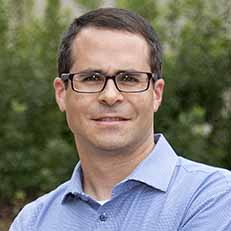Professor, Paul H. O’Neill School of Public & Environmental Affairs, Indiana University
David Konisky
Interviewers: Shelley Welton, Interview date: February, 2020 Keywords: Climate Public Opinion
Public Attitudes on Energy & Climate
“’What we found is that there is a structure [to preferences], … and the two factors that matter the most are the perceived environmental harms associated with energy as well as their costs. In particular, it’s the local environmental harms … Those two attributes were really the drivers. … We found that local environmental harms had twice the weight as their costs.”
“People have very strong favorability toward renewable sources … People are less favorable toward natural gas, oil, coal … People are conflicted about nuclear power. … That was pretty stable over time.”
“People find [climate change] to be important, and there is shared concern about it. [But] climate change for most people is still pretty low-salience. … Yes, we are concerned, but [it isn’t] driving our behavior.”
“People are less certain about approaches that rely on markets, whehter it be cap and trade or taxes. People seem to have reticence about allowing the markets or industry to pick and choose … Regulation is something people have a higher comfort level with. There’s a little more certainty to it.”
David Konisky is a professor of public policy at Indiana University’s Paul H. O’Neill School of Environmental and Public Affairs. Professor Konisky’s research focuses on U.S. environmental and energy policy, with particular emphasis on regulation, federalism and state politics, public opinion, and environmental justice..
- , Cheap and Clean: How Americans Think About Energy in the Age of Global Warming (MIT Press, 2016)
- Carley, Are all electrons the same? Evaluating support for local transmission lines through an experiment,” PLOS One (2019)
To learn more about David Konisky, please visit his home page: HERE


Recent Comments